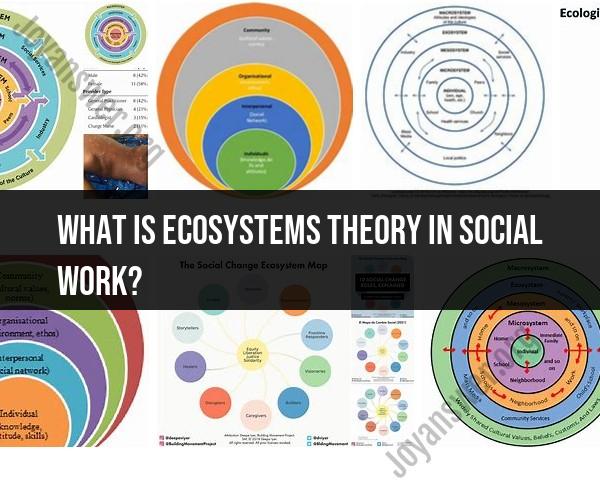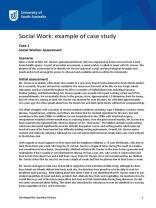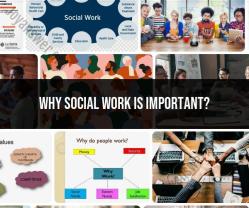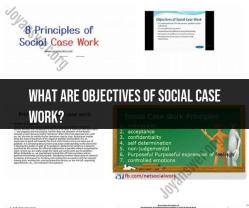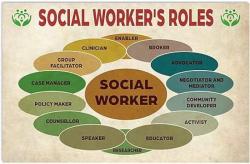What is ecosystems theory in social work?
Ecosystems theory, also known as ecological systems theory, is a framework used in social work and other social sciences to understand and analyze the complex interactions between individuals and their social environments. Developed by Urie Bronfenbrenner in the 1970s, this theory provides a holistic perspective on human development and behavior by considering the impact of multiple systems or "ecosystems" on an individual's life. Ecosystems theory is often used in the field of social work to assess, intervene, and advocate for individuals and communities in need. Here are the key components of ecosystems theory in social work:
Microsystem: This is the closest and most immediate environment in an individual's life. It includes the people and settings with which the person has direct and regular contact. Examples of microsystem components include family, peers, school, and the workplace. In social work, practitioners often focus on helping individuals navigate and improve their microsystems.
Mesosystem: The mesosystem consists of the interactions and connections between the various components of the microsystem. For example, how a child's experiences at school (one microsystem) might impact their family life (another microsystem). Social workers consider these interrelationships to understand how changes in one part of a person's life might affect other areas.
Exosystem: The exosystem includes external settings or systems that indirectly affect an individual's life. These may not involve direct interaction with the person but still have a significant impact. Examples of exosystem elements are government policies, community organizations, and the workplace policies of a parent affecting a child's well-being.
Macrosystem: The macrosystem encompasses broader cultural, societal, and ideological influences that shape an individual's life. This includes cultural norms, values, economic conditions, and political systems. Social workers must consider how these factors can both support and challenge individuals and communities.
Chronosystem: This dimension recognizes the importance of time and the impact of changes and transitions over the life course. Life events, historical events, and developmental milestones can influence an individual's experiences and development. Social workers take into account how past and future events may affect a person's well-being.
Ecosystems theory emphasizes the interconnectedness of these systems and how they influence an individual's behavior, development, and well-being. In social work practice, it guides professionals to:
Assess: Social workers use the ecosystems perspective to assess the various systems impacting an individual or family's life and identify strengths and challenges within these systems.
Intervene: Interventions are designed to empower individuals and families by enhancing their strengths and addressing challenges within their ecosystems. This may involve individual counseling, family therapy, advocacy for policy changes, or community development initiatives.
Advocate: Social workers often advocate for systemic changes at the meso-, exo-, and macrosystem levels to improve the well-being of the populations they serve. This may involve advocating for social policies, equitable resource allocation, or anti-discrimination measures.
Overall, ecosystems theory in social work underscores the importance of considering the broader context in which individuals and families live and the systems that influence their lives. It promotes a comprehensive approach to understanding and addressing social issues and promoting human well-being.
Ecosystems Theory in Social Work: Uniting People and Environments
Ecosystems theory is a theoretical framework that examines the complex interactions between individuals and their environments. It is a holistic approach that considers the physical, social, cultural, and economic factors that influence human development and well-being.
Ecosystems theory is widely used in social work practice. It helps social workers to understand the complex needs of their clients and to develop interventions that address the root causes of their problems.
For example, a social worker working with a homeless client might use ecosystems theory to identify the factors that contributed to their homelessness, such as poverty, lack of affordable housing, and mental illness. The social worker could then develop an intervention plan that addresses these factors, such as helping the client to find housing and access mental health services.
Ecosystems theory also helps social workers to advocate for social change. By understanding the complex factors that influence human development and well-being, social workers can advocate for policies and programs that support individuals and families.
Social Work and Environmental Harmony: Exploring Ecosystems Theory
Ecosystems theory is particularly relevant to social work in the context of environmental challenges. Climate change, pollution, and other environmental problems are having a significant impact on human health and well-being.
Social workers can use ecosystems theory to understand the complex relationship between human activity and the environment. They can also use this theory to develop interventions that promote environmental sustainability and protect human health.
For example, a social worker might work with a community to develop a plan to reduce air pollution. The social worker might also work with individuals and families to help them adapt to the impacts of climate change, such as sea level rise and extreme weather events.
Bridging Human Lives and Ecosystems: Social Work's Ecosystems Approach
The ecosystems approach in social work is a holistic approach that emphasizes the interconnectedness of individuals and their environments. It recognizes that human well-being is dependent on a healthy environment.
Social workers who use the ecosystems approach focus on interventions that address the root causes of social problems and promote environmental sustainability. They also work to advocate for policies and programs that support individuals, families, and communities.
The ecosystems approach in social work is essential for addressing the complex challenges of the 21st century, such as climate change, poverty, and inequality. By bridging human lives and ecosystems, social workers can help to create a more sustainable and equitable world.
Here are some examples of how social workers are using the ecosystems approach to address environmental challenges:
- Working with communities to develop renewable energy projects
- Advocating for policies that reduce greenhouse gas emissions
- Helping individuals and families to adapt to the impacts of climate change
- Educating the public about the importance of environmental protection
- Working to reduce pollution and protect natural resources
The ecosystems approach in social work is a powerful tool for promoting environmental sustainability and protecting human health and well-being.
